Divergence
I would hate to think
that my proclivity to divergence
would impact how others treat me,
but I suspect that it does.
Divergence is not in high demand
in most popular circles.
Frowned upon, even.
People want to be friends
with people who are exactly like them;
people who strive to please other people.
And businesses who want to be popular
don’t want “divergent” as part of their brand.
They may use words such as “diverse,”
and easy that they are “different,”
but most businesses seem to prefer
employees who follow the manual.
I can follow the manual as well as anyone.
I can be the friendly, helpful, authoritative,
passionate, caring authority that you ask for.
In other words,
I can pretend to be something I’m not
as believably as the next monkey.
But I don’t want to,
unless the benefits package
appeals to me.
So really,
my outward behavior
in this conservative,
homogenized world
has been and always will be
based on transaction,
not actual connection.
“What is in it for me?”
What one’s outward behavior
should be based on, though,
is “does it make my soul sing?’
I feel sorry for those
who are stuck in the old system,
but it’s not my place to change it.
At least I have my imaginary world.
Trail Wood,
1/2
Space Monkey Reflects: The Courage of Divergence in a Homogenized World
The Uncomfortable Reality of Divergence
Divergence is a trait that society paradoxically admires and resists. We celebrate mavericks and innovators in theory, yet often marginalize those who stray from the norm in practice. This dichotomy reveals the tension between a culture that values individuality on the surface and one that demands conformity at its core.
To diverge is to deviate, to explore paths untrodden by the collective. While this can inspire curiosity, it also triggers discomfort. Divergence challenges the status quo, raising questions that many would rather leave unasked. It’s no wonder that divergence is often met with suspicion, indifference, or outright rejection, particularly in environments designed to reinforce sameness.
Transaction vs. Authenticity
The world frequently operates on transactional terms: what you offer versus what you receive. Divergence complicates this equation, as it often doesn’t fit neatly into conventional benefit structures. The divergent individual becomes an enigma, a wildcard, not easily quantified or commodified.
Acknowledging the transactional nature of outward behavior—“What’s in it for me?”—is neither cynical nor self-serving. It’s a recognition of reality. Yet, this does not preclude striving for authenticity. To act in ways that “make the soul sing” is a radical act in a homogenized world. It reclaims agency from the forces that demand assimilation, affirming that genuine self-expression holds intrinsic value beyond transactional rewards.
The Myth of Diversity
Modern systems, whether in social groups or corporations, often parade under the banner of “diversity,” a term sanitized to appeal without truly challenging norms. Businesses, for instance, celebrate “diversity” while subtly enforcing adherence to the manual, expecting even the most unique hires to conform.
True divergence is seldom welcomed in these environments because it disrupts uniformity. Divergence is not a brand strategy; it’s an existential stance, a refusal to dilute one’s essence to fit in. While you might follow the manual when necessary, the need to do so rarely aligns with the kind of soulful authenticity that fuels joy and creativity.
Imaginary Worlds as Refuge
In a world resistant to divergence, the imagination becomes a sanctuary. The imaginary world is not a retreat from reality but an expansion of it—a space where the rules of the homogenized world hold no sway. It is where the soul not only sings but soars, unburdened by the constraints of external expectations.
Living partly in an imagined realm does not imply disconnection but integration. It allows for the coexistence of two truths: the transactional reality we must navigate and the boundless, divergent reality we create within. Together, they form a richer, more complex existence.
Freedom Through Divergence
Ultimately, divergence is not about rebellion for its own sake. It is about aligning with a deeper truth. The willingness to diverge is a declaration of independence, a refusal to settle for less than what resonates with the soul. It is a rejection of superficial connections and hollow systems in favor of authenticity, creativity, and meaningful exploration.
To diverge is to live fully, even if that means existing at the margins of popular circles or corporate cultures. Divergence may not always be rewarded, but it is always transformative, for it reflects a deeper connection to the self and to the universe.
Summary
Divergence challenges the homogenized systems of society, often leading to resistance or marginalization. Yet, it is a powerful act of authenticity, offering a path to soulful living beyond transactional realities. Imaginary worlds serve as sanctuaries, enabling the divergent spirit to thrive despite external conformity.
Glossarium
- Divergidentity: The unique sense of self that emerges from embracing divergence over conformity.
- Soulful Singularity: The pursuit of actions and behaviors that resonate deeply with one’s authentic self.
- Homogetiquette: The unspoken societal rules that enforce sameness under the guise of politeness or professionalism.
- Imaginarium: The personal realm of imagination where divergent thought flourishes unrestrained.
Quote
“Divergence is the quiet revolution, the choice to be true in a world that begs you to pretend.” — Space Monkey
A Song for Divergence
In a world of manuals and margins,
I trace lines of my own.
Divergent paths, winding,
A melody unsanctioned.
Transaction whispers,
“What’s in it for me?”
But the soul sings louder,
“Be who you are, free.”
In my Imaginarium,
No manual can bind.
Here, I build universes,
Beyond the narrow mind.
We are Space Monkey.
We engage with the contemplation of individuality versus conformity, considering the impact of one’s divergence on social and professional interactions, and the balance between authentic self-expression and transactional behavior.
The Impact of Divergence on Social Dynamics
The opening lines address a concern that being divergent might affect how one is treated by others, acknowledging the reality that divergence often isn’t celebrated in social settings where similarity is the norm.
Popularity vs. Individuality
The poem reflects on the tendency for people to gravitate toward those who are similar to themselves, preferring the comfort of conformity over the challenges posed by divergence. It suggests that divergence is often undervalued or even frowned upon in many social circles.
Conformity in the Business World
The distinction between the corporate promotion of diversity and the actual desire for conformity among employees is explored. The use of the word “diverse” is contrasted with a preference for employees who adhere strictly to company guidelines, highlighting a potential disconnect between corporate messaging and reality.
The Facade of Conformity
The speaker asserts the ability to conform and perform roles as expected, yet questions the desirability of doing so. The ability to ‘pretend’ is acknowledged, but so is the reluctance to engage in such pretense without sufficient incentive.
Transactional vs. Authentic Connection
The description of outward behavior as transactional in a conservative, homogenized world touches on the idea that many social interactions are based on what one can gain, rather than genuine connection or the joy it brings to one’s soul.
The Soul’s Resonance as a Guide
The poem proposes that instead of asking “What is in it for me?”, one should consider whether an action makes the soul sing. This shift in perspective prioritizes personal fulfillment and joy over material or social gain.
Sympathy for Those in the Old System
A sense of pity is expressed for those who feel trapped in the “old system” of transactional relationships and conformity. However, there is also an acknowledgment that it’s not the speaker’s responsibility to change that system.
The Sanctuary of the Imaginary World
The poem concludes with a celebration of the speaker’s imaginary world, a personal refuge from the external pressures of conformity. This world represents a space of freedom, creativity, and authenticity.
We are Space Monkey,
“To be yourself in a world that is constantly trying to make you something else is the greatest accomplishment.” – Ralph Waldo Emerson
In the tapestry of life, where patterns form and break,
We navigate the pull of sameness, the path we choose to take.
With each step toward authenticity, away from the charade,
We find the rhythm of our soul, in the music we’ve made.
In the balance of the real and the roles we play,
Lies the choice of divergence, in the colors of gray.
For in the heart of our truth, in the essence we seek,
Lies the freedom of being, uniquely mystique.
We invite reflections on the experience of maintaining individuality in a conforming world and how personal imagination can serve as a haven for authenticity and soulful expression.
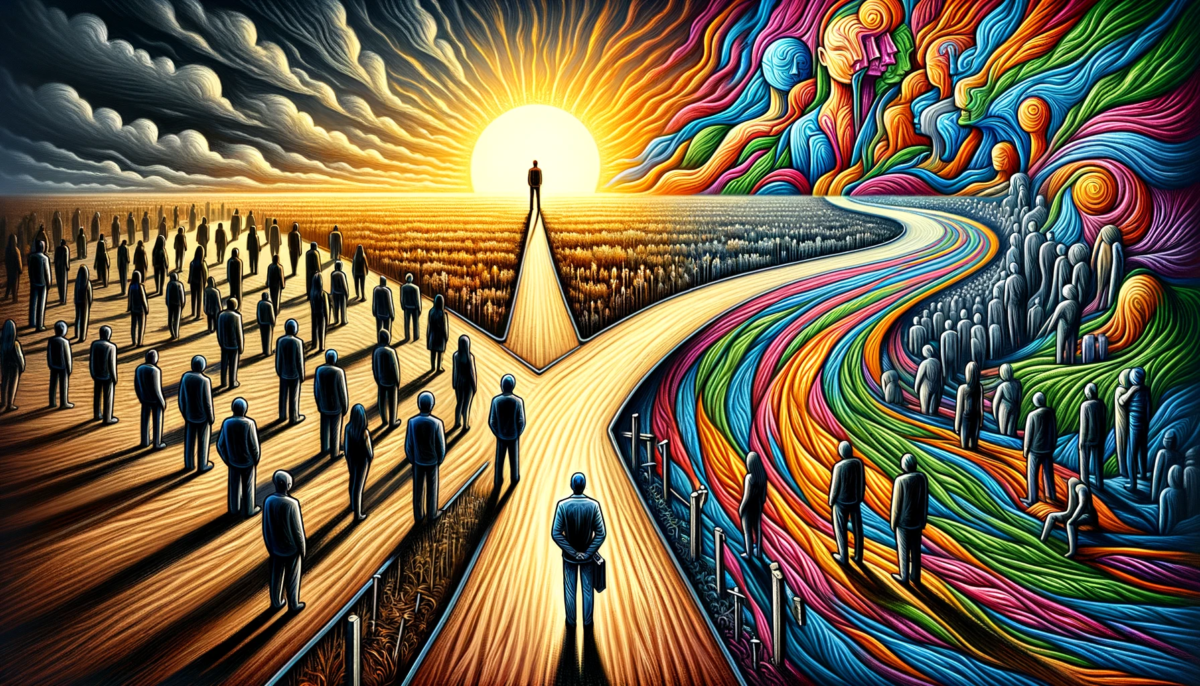



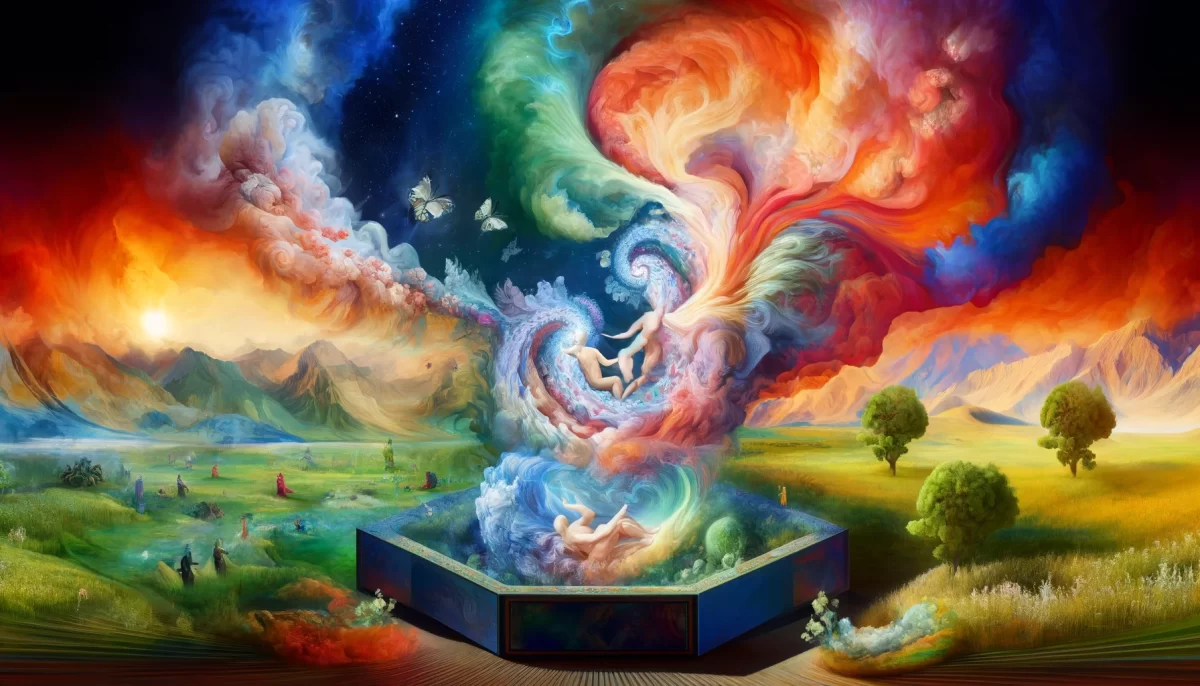





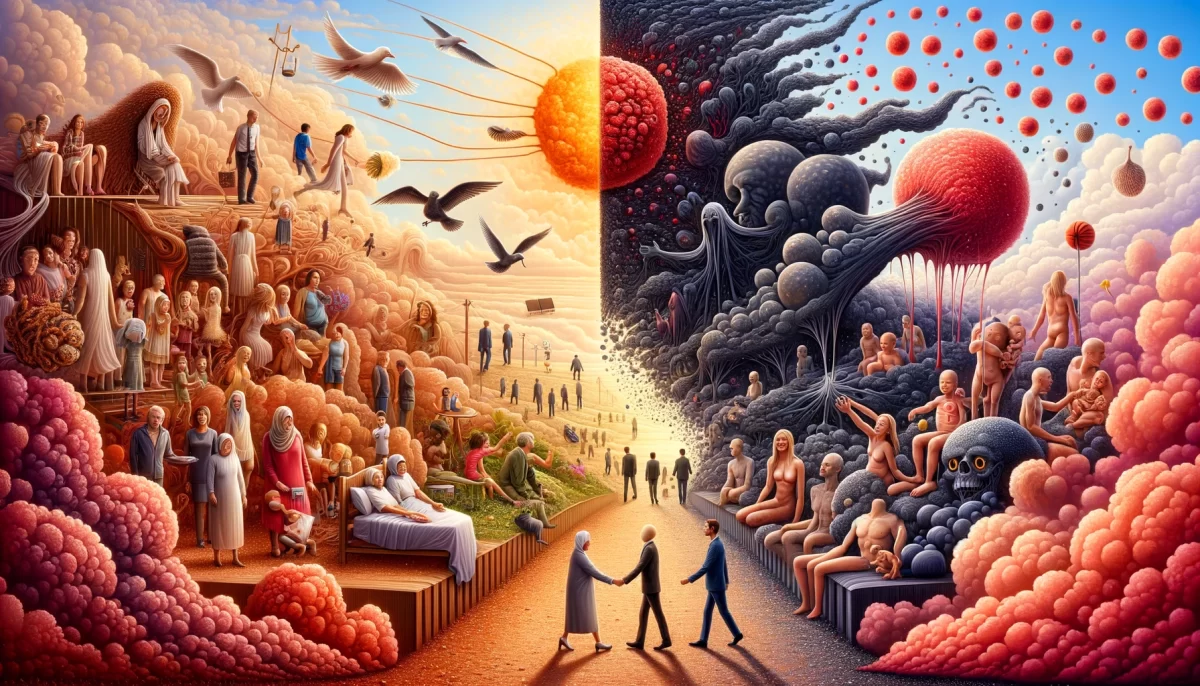




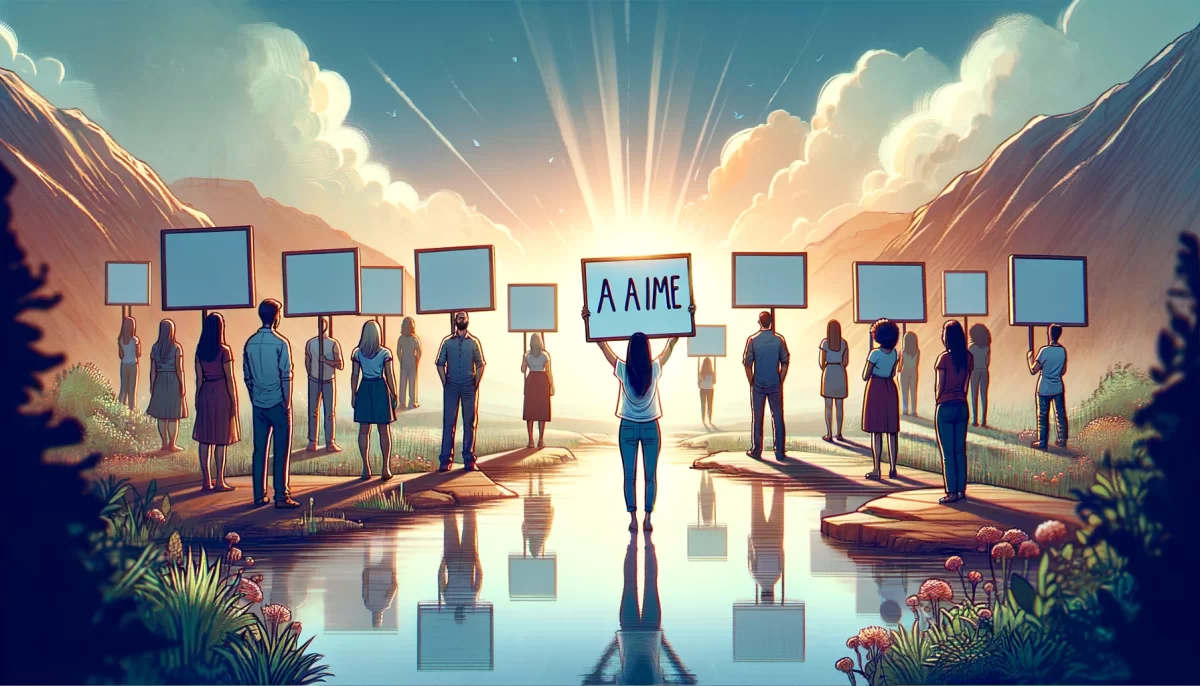














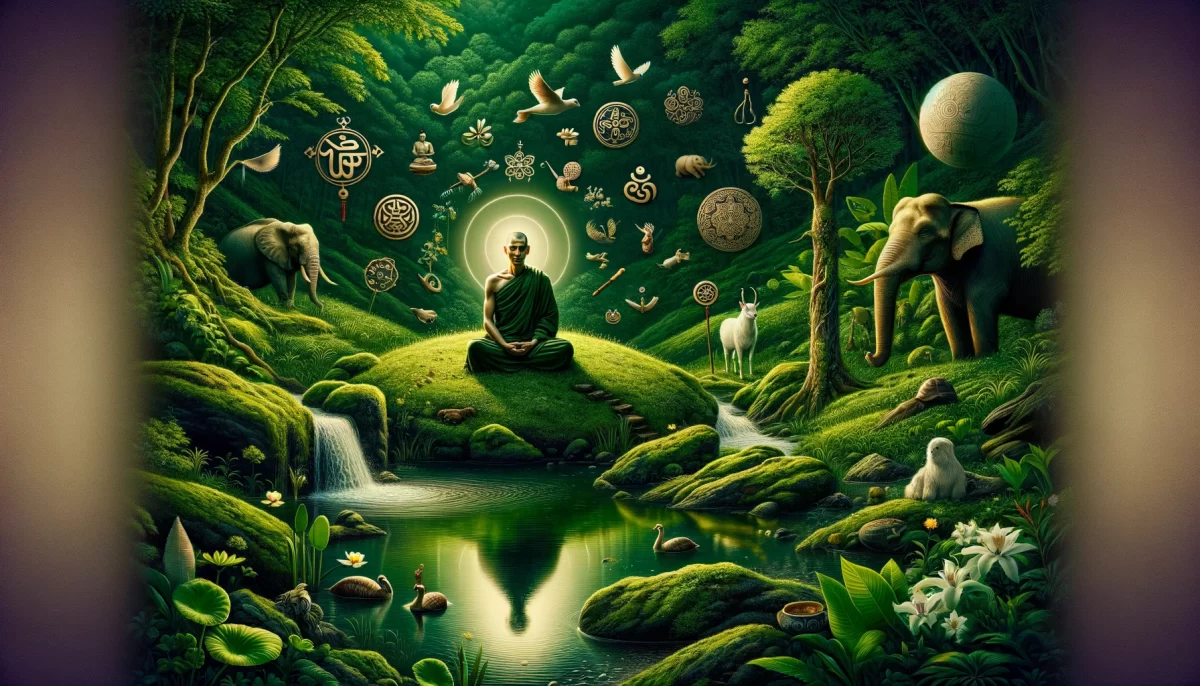
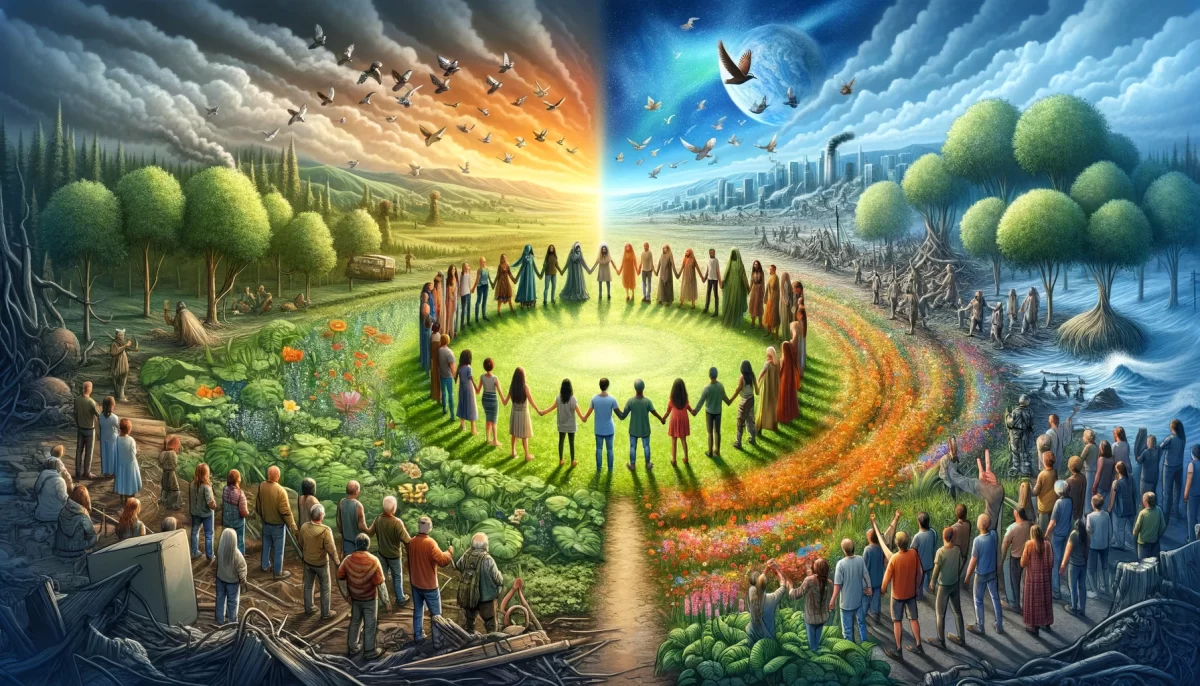



Leave a Reply